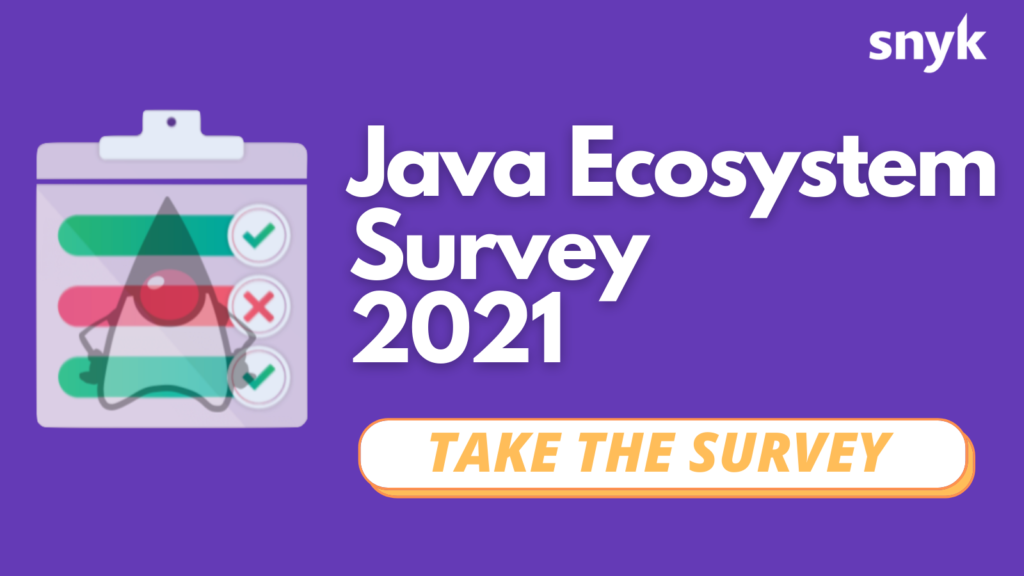Java Ecosystem Survey 2021
- April 01, 2021
- 4360 Unique Views
- 2 min read
Just like in 2020, Snyk is creating a comprehensive Java 2021 report that reflects the state of the JVM ecosystem.
Note: Friday, 2 April, the survey will come to an end, after running since the middle of February, spread the word! 🙂
Here's the summary of the JVM Ecosystem 2020 report:
As always, we couldn’t have done this without you! So, once again, we ask for your help with the 2021 edition of the JVM Ecosystem Report.
Just like last year, we put together a comprehensive survey. Together with our partner Azul, we would like your input on how you use Java and the JVM ecosystem.
It takes less than 3 minutes to voice your preferences in this year’s Java and JVM report!
Our final report this year will embed multiple data points, on top of the survey results, so this will be extra interesting! Besides data that we already have at Snyk, we will look at GitHub projects, Google searches, and other available data. Combined with the survey results, we aim to create the most comprehensive overview of the JVM 2021 landscape.
By submitting your answers to this survey, you are not only helping the community by sharing your data, but you can also help our charity goal for this year. Once we get to 2,000 responses, we'll donate $1000 to Devoxx4Kids! And if we exceed 5,000 responses, we'll top that up to $2,000!
We value diverse input, so please do share this survey with friends and colleagues. Let your Java voices be heard!
Don’t Forget to Share This Post!






Comments (1)
John
5 years agoJust a note about adding "Other" items in the survey: it's not clear that you need to click the white box with the green check mark after entering your text and before pressing the green OK button at the bottom. If you just press OK without first clicking the "Other" check mark in the text field, the text you entered is silently discarded.